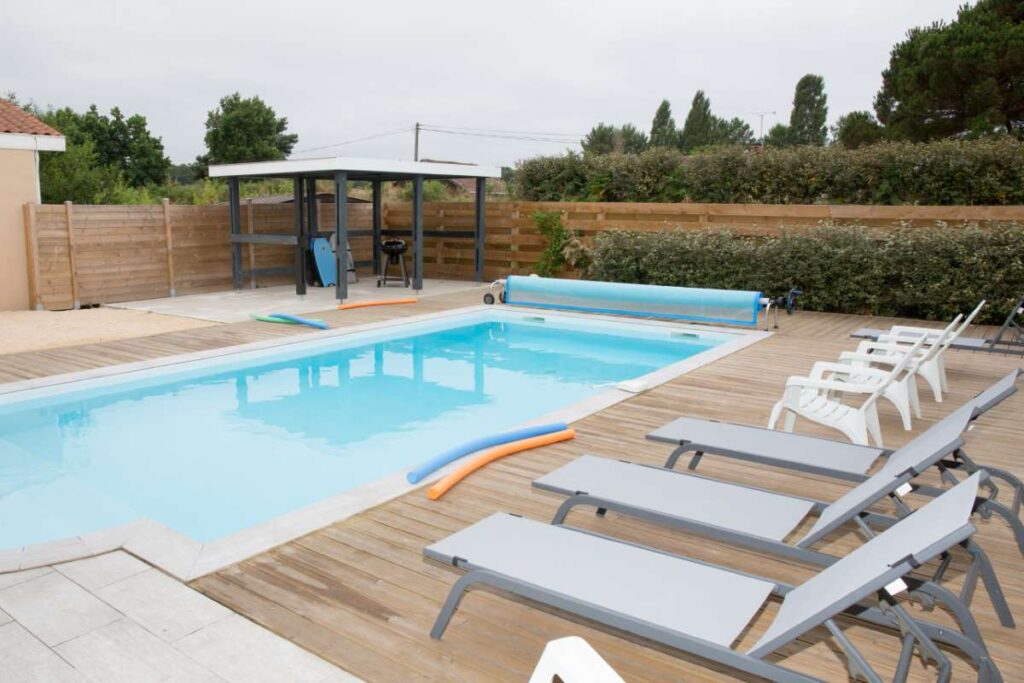The right strategic planning can transform your pool service operations, increasing efficiency, profitability, and customer satisfaction.
The Importance of Strategic Planning in Pool Service Operations
Strategic planning is essential in any business, and pool service operations are no exception. In a competitive market, having a clear plan can provide a roadmap for success, helping businesses navigate challenges and seize opportunities. This article delves into the significance of strategic planning for pool service operations, examining key elements such as operational efficiency, client relationships, and resource management. We will also explore practical strategies and tools, including software solutions like Pool Biller Software, that can enhance your business’s effectiveness.
In the pool service industry, strategic planning is necessary for maintaining a competitive edge. With numerous service providers vying for the same clientele, creating a well-structured plan allows businesses to identify their unique selling propositions, allocate resources effectively, and streamline operations. Understanding the market dynamics and having a clear vision can lead to better decision-making, ultimately improving service delivery and customer satisfaction.
This post will address several vital aspects of strategic planning in pool service operations, including the importance of operational efficiency, customer relationship management, financial planning, and technology integration. By the end, you’ll have a better understanding of how to implement strategic planning to foster growth and success in your pool service business.
Understanding Operational Efficiency
Operational efficiency is the cornerstone of any successful pool service business. It refers to the ability to deliver quality services while minimizing waste and maximizing productivity. In the context of pool service operations, this can involve optimizing route scheduling, managing technician workloads, and implementing effective service protocols.
One way to enhance operational efficiency is through the use of dedicated software solutions, such as [Pool Biller Software](https://ezpoolbiller.com/). This tool allows pool service operators to schedule jobs, track service history, and manage billing in one place. By automating these processes, businesses can reduce time spent on administrative tasks and focus more on delivering exceptional service.
Moreover, analyzing service data can help identify trends and areas for improvement. For instance, by examining the frequency of service calls, businesses can adjust their staffing schedules to ensure adequate coverage during peak seasons. This strategic approach not only improves efficiency but also enhances customer satisfaction by ensuring timely responses to service requests.
Building Strong Customer Relationships
In the pool service industry, strong customer relationships are vital to long-term success. Strategic planning involves understanding customer needs and preferences, which can inform service offerings and communication strategies. By prioritizing customer engagement, businesses can foster loyalty and encourage repeat business.
Utilizing customer relationship management (CRM) tools can significantly enhance this aspect of strategic planning. These tools allow pool service operators to store client information, track interactions, and manage follow-ups effectively. For example, sending automated reminders for upcoming service appointments can help ensure customers remain informed while reducing no-shows.
Additionally, soliciting feedback from clients after service visits can provide valuable insights into their satisfaction levels. This information can be used to make necessary adjustments to service protocols and address any concerns promptly. By actively engaging with customers, pool service businesses can build trust and a strong reputation in their communities.
Financial Planning and Budgeting
A solid financial plan is crucial for any business operation, and pool service companies are no exception. Strategic financial planning involves forecasting revenues, estimating expenses, and managing cash flow effectively. This enables businesses to allocate resources wisely and invest in growth opportunities.
Pool service operators should regularly review their financial performance and set realistic budgets for various operational areas. For example, setting aside funds for marketing initiatives can help attract new customers while investing in employee training can enhance service quality. Utilizing financial management software can aid in tracking expenses and generating reports, providing insights into the business’s financial health.
Moreover, businesses can explore pricing strategies to optimize profitability. Understanding the market rates for pool services can inform competitive pricing models, ensuring that the business remains attractive to potential customers while maintaining healthy profit margins.
Integrating Technology for Enhanced Efficiency
Technology plays a pivotal role in modern pool service operations. In today’s digital age, integrating technological solutions can streamline processes and improve overall efficiency. Strategic planning should encompass the evaluation and implementation of various tools that can enhance service delivery.
For instance, using scheduling software can optimize technician routes, reducing travel time and fuel expenses. This not only increases operational efficiency but also allows technicians to service more clients in a day. Furthermore, leveraging invoicing software, such as [Pool Biller Software](https://ezpoolbiller.com/), simplifies the billing process, ensuring accurate and timely invoicing.
Additionally, mobile applications can empower technicians by providing them with real-time access to client information, service history, and job details. This allows for better communication and coordination, ultimately leading to improved customer service. Embracing these technological advancements can give pool service businesses a significant competitive advantage.
Adapting to Market Changes
The pool service industry is subject to various external factors, including seasonal fluctuations, economic conditions, and changing customer preferences. Strategic planning must include a framework for adapting to these market dynamics. Regular market analysis can help businesses identify emerging trends and adjust their strategies accordingly.
For example, during peak summer months, pool service companies may experience increased demand for maintenance services. Businesses can prepare for this spike by hiring seasonal staff or optimizing their scheduling to accommodate a higher volume of service calls. Conversely, during off-peak seasons, diversifying service offerings—such as pool winterization or equipment repairs—can sustain revenue streams.
Moreover, keeping an eye on competitors’ strategies can provide valuable insights into market trends. By understanding what works for others in the industry, pool service operators can adapt their approaches and remain competitive. Continuous evaluation and adjustment are essential components of a successful strategic plan.
Implementing Staff Training and Development
Investing in staff training and development is a crucial aspect of strategic planning in pool service operations. Well-trained employees are better equipped to deliver high-quality service, enhancing customer satisfaction and loyalty. Training programs can cover various topics, including technical skills, customer service, and safety regulations.
Providing ongoing training opportunities not only improves employee performance but also fosters a positive work environment. Employees who feel supported in their professional development are more likely to remain committed to the company and contribute to its success. Furthermore, establishing a clear pathway for career advancement can motivate staff to take ownership of their roles.
Utilizing technology for training purposes can also be beneficial. Online training modules or video tutorials can be easily accessed by employees, allowing them to learn at their own pace. Additionally, incorporating hands-on training sessions ensures that technicians gain practical experience, which is vital in the pool service industry.
Measuring Success and Adjusting Strategies
Strategic planning is an ongoing process that requires continuous evaluation and adjustment. To measure success effectively, pool service businesses should establish key performance indicators (KPIs) that align with their strategic goals. These KPIs can include customer satisfaction ratings, revenue growth, and operational efficiency metrics.
Regularly reviewing these metrics allows businesses to assess their performance and identify areas for improvement. For instance, if customer feedback indicates dissatisfaction with response times, companies can explore ways to enhance their scheduling practices or increase staff availability.
Additionally, conducting periodic SWOT analyses (Strengths, Weaknesses, Opportunities, Threats) can provide valuable insights into the business’s current position. This analysis helps identify internal strengths to leverage and external opportunities to pursue while addressing potential weaknesses and threats.
Conclusion
Strategic planning is essential for the success and growth of pool service operations. By focusing on operational efficiency, customer relationships, financial planning, and technology integration, businesses can navigate challenges and seize opportunities in a competitive market. Moreover, investing in staff training and continuously measuring success ensures that companies remain adaptable and responsive to changing circumstances.
As you develop your strategic plan, consider utilizing tools like [Pool Biller Software](https://ezpoolbiller.com/) to streamline your operations and enhance efficiency. With the right strategic approach, your pool service business can thrive, delivering exceptional value to your clients while achieving sustainable growth.




